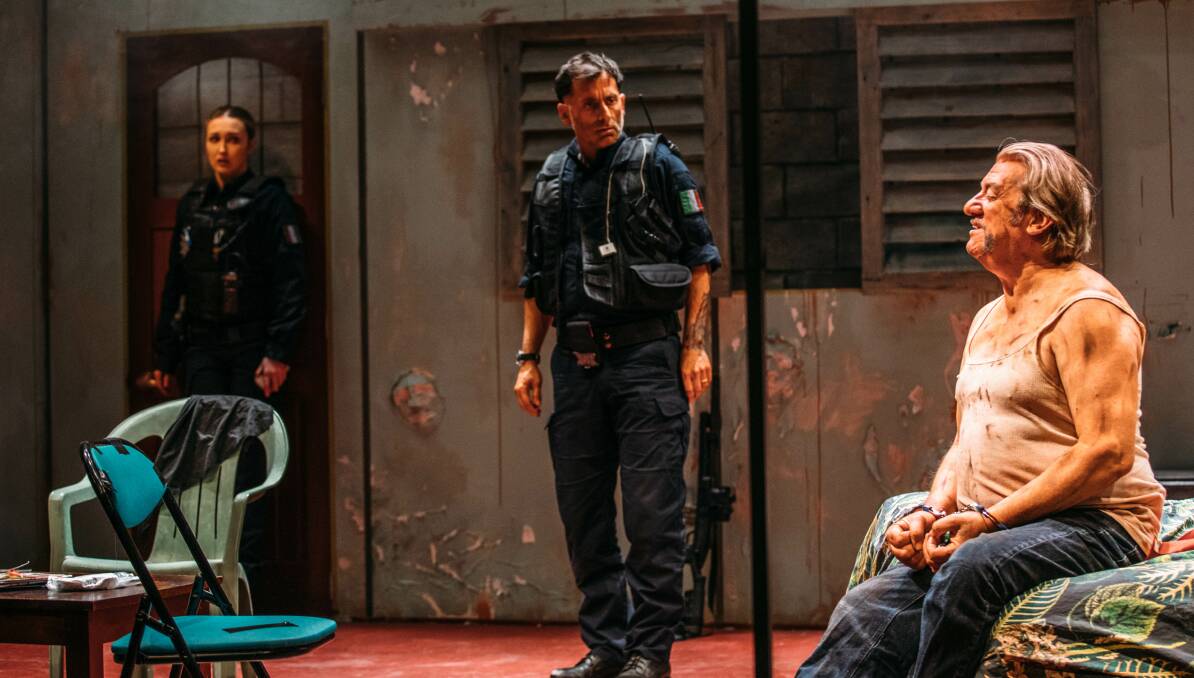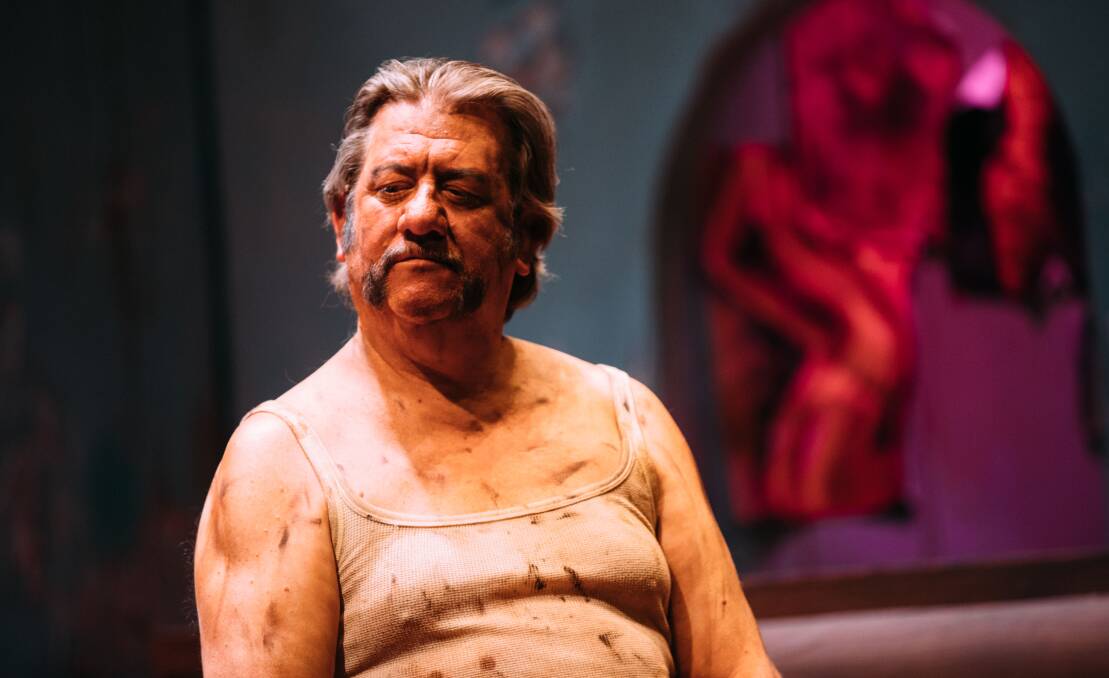
Twenty Minutes with the Devil. By Luis Gomez Romero and Desmond Manderson. Directed by Caroline Stacey. The Street Theatre. Until June 25. Bookings: www.thestreet.org.au or 6247 1223.
The Street's production of Twenty Minutes with the Devil has finally battled its way through COVID to reach the stage and it's as wild a ride as the title might suggest, although somewhat longer than 20 minutes.
Subscribe now for unlimited access.
or signup to continue reading
It represents an intriguing collaboration between law academics Luis Gomez Romero and Desmond Manderson, and The Street Theatre. There's history, morality and justice swirling in an increasingly surreal look at the world of drugs, based on the real-life Mexican drug lord El Chapo.
In a sleazy motel room, two Mexican cops are holding a dishevelled prisoner. It's either about a traffic offence or something much darker. It soon becomes apparent that this prisoner efficiently handcuffed and chained to the bed is drug lord El Ticho (PJ Williams). The two cops may be very much out of their league.

In charge is the self-contained Lieutenant Angela Bassols Guzman (Joanna Richards). Offsider Sergeant Romulo Garcia Hernandez (Raoul Craemer) is out of a lower social strata, nervy, separated from his wife, concerned over the need to pick up his young daughter. It's hot, it's an isolated desert spot and it isn't clear how the two officers are going to deal with a situation that escalates into personal temptations for both of them.
As the large uneasy presence that is El Ticho, Williams is increasingly disturbing, with an amoral authority that upsets any certainties held to by the other two.
The pace of the first half is a little slow to build up the necessary energy as the play moves increasingly into surrealism. But set designer Imogen Keen and lighting designer Antony Hateley have come up with lush and disturbing visuals that support the script. James Tighe's sound has a twitchy and unsettling feeling that underpins the visuals.
This motel room is a box, right down to the suggestion of a wall between the action and the audience. But the walls reveal more than bad repairs. There are faces there and the floor too has its surprises. And the death of an air conditioner is a jolting moment.
The room rattles with guns and the fears and dreams of the two police officers as a routine traffic arrest escalates into something much more terrifying. Richards' self contained Angela finds some refuge in dreams of the cool north and a social status that is an uncertain protection. Gender, too, comes into play and could perhaps do so even more. It's a tougher role to clarify than that of Romulo but Richards brings it some presence.
Craemer's sharply observed Romulo is right in there among the potential consequences for himself and for his young daughter. He's an underdog, linked less to the Spanish conquerors and more to the indigenous traditions of the country when the chips are down. His fears of what El Ticho represents are on a very practical level.
Williams' brooding El Ticho might be chained to that bed but there's a sense that his dominating presence can be let loose at any moment. And that the outcomes are already determined. The result is not necessarily going to be justice.
It is a challenge to translate the debates of academia into the images and words of theatre but this collaboration has resulted in a visually rich and somewhat thought provoking evening.

